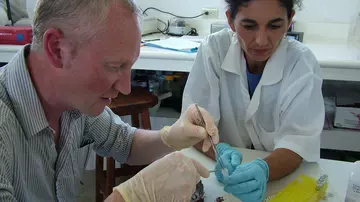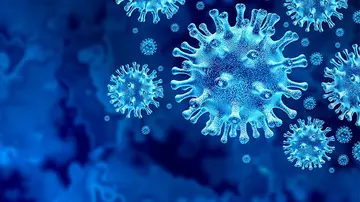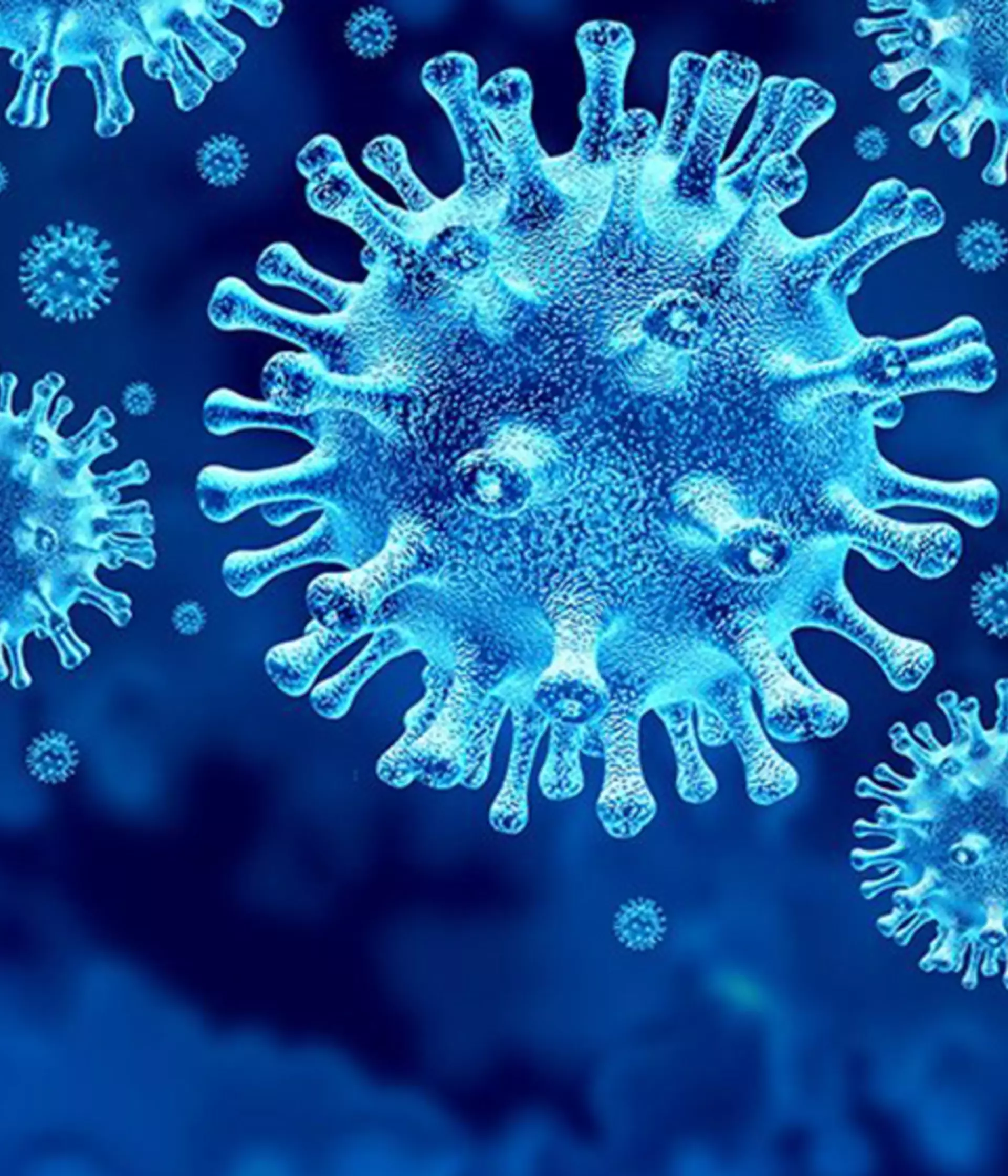
Andrew Cunningham
Deputy Director of Science
Andrew Cunningham, Deputy Director of Science, explains how wildlife conservation could help us avoid another pandemic like COVID-19.
The world is undergoing a global public health crisis following the emergence of COVID-19, a disease which almost certainly originated from a species of wild animal.
That this has occurred at the same time the planet is undergoing a biodiversity extinction crisis is not a coincidence.
Conserving biodiversity and safeguarding public health are inextricably linked through a range of complex ecological and socio-economic factors.
Many drivers of biodiversity loss, such as habitat loss and encroachment, bushmeat hunting and the trafficking of wild animals and their products, are the same drivers of zoonotic disease emergence.

In addition, as biodiversity is lost, both the abundance of pathogens and their zoonotic emergence risk increases: our planet’s biodiversity acts as a protective mechanism against human disease in a similar, but more complex, way to our intestinal biodiversity.
In much the same way that a healthy human gut is made up of a hugely diverse array of microbes - which works to protect the body from being overwhelmed by any one harmful organism - the rich mosaic of species that occurs in undisturbed ecosystems inhibits opportunities for pathogens to build up into high numbers across animal populations, thus limiting the degree of human exposure to any particular wildlife pathogen.
Why do wildlife diseases spread to humans?
The rate of zoonotic spill-over from wild animals has accelerated over recent decades, alongside an alarming increased loss of biodiversity – the 2018 Living Planet Index, produced by ZSL for WWF, showed that the populations of monitored mammals, birds, reptiles, amphibians and fish have, on average, declined by more than half in little more than 40 years.
At the same time, significant disease outbreaks have caused major loss of life and economic devastation: 75% of all new human diseases identified in recent years began as zoonoses and many of these - including SARS, MERS, Ebola, Hendra, Nipah and now Covid-19 - originated from wildlife either directly or via domestic animal intermediate hosts.

Understanding wildlife health is necessary to protect public health but also is key to successful wildlife conservation.
In addition, human connections with wildlife can have a positive impact on mental health and other social outcomes (e.g. youth truancy and crime).
How can we avoid another COVID-19?
The world’s wildlife links the environment with human health and well-being in a variety of ways, including food security, fresh water provision and carbon sequestration. This holistic approach to preserving the health of all life on earth is often termed ‘One Health’.
During the COVID-19 pandemic, much has been made of the importance of wild animals, such as bats, as sources of pathogens that can jump into new species, including human beings.
However, wild animals are not the problem. They don’t cause disease emergence. People do.
At the root of the problem is human behaviour.
Once we recognise this, we can investigate what the risky behaviours are and change these so that human behaviour becomes the solution.
Investment in preventative zoonotic emergence research is crucial
But to know which behaviours to change and how, we must fundamentally shift our approach to zoonotic emergence research from solely trying to predict the next emergence event - through “virus hunting” - to prevention, through the identification and mitigation of zoonotic spill-over risk factors.
To find these solutions we need to understand more about wildlife diseases and how people and wildlife interact, and this requires significant investment in preventative zoonotic emergence research, the likes of which ZSL is at the forefront of in the UK.
We need to understand how to prevent spill-over happening in the first place without adversely affecting the lives of the wild animals in which the pathogens occur naturally. It is imperative that we mitigate zoonotic emergence while conserving the biodiversity on which we all depend.
Britain must continue its longstanding global leadership in zoological discovery and scientific endeavour to avoid further public health disasters – ZSL can help make sure that happens, but we need your help.
